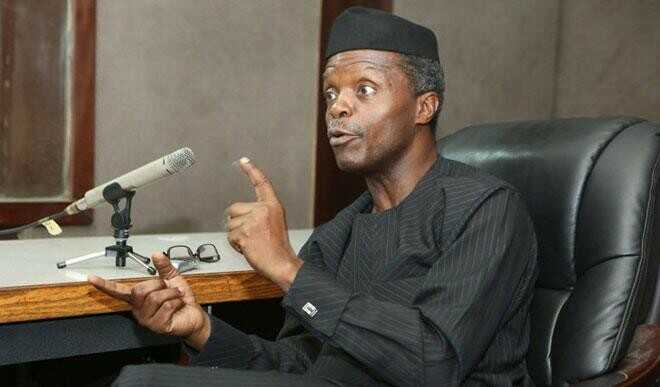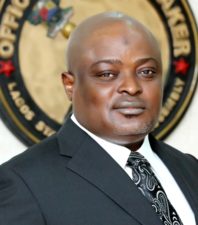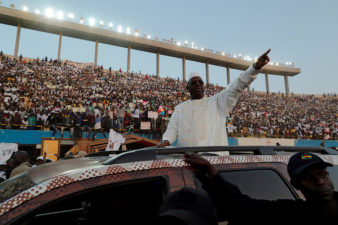Acting President Yemi Osinbajo has declined assent to four bills amended by the National Assembly for several reasons including an ongoing court case against one of the Acts.
The lawmaker Thursday threatened to override Osinbajo’s veto on the four bills.
Osinbajo’s four letters to the National Assembly were read at both chambers by the Senate President Bukola Saraki and House of Representatives Speaker Yakubu Dogara.
The bills rejected are Agricultural Credit Guarantee Scheme Fund (Amendment) Bill 2016, Currency Conversion (Freezing orders) amendment bill, 2016, Dangerous Drugs (Amendment) Bill, 2016 and National Lottery (Amendment), Bill 2016.
Osinbajo said he withheld assent to Agricultural Credit Gurantee Scheme fund because, “of the concerns surrounding board composition, funding arrangements, limitation of liability of funds, and proposals to increase levels of uncollateralised loans from N5,000 to N250,000”.
The acting President said he rejected the Currency conversion bill in view of the concern regarding the modalities for the communication of asset forfeiture orders.
On the dangerous drugs bill, Osinbajo said certain words and phrases utilised in the draft bill may be inconsistent with the Principal Act.
He said he withheld assent to the National Lottery amendment bill, following the existence of pending legal challenge to the competence of the National Assembly to legislate on the subject matter.
Daily Trust reports that the acting President last weekend assented to seven bills passed by the National Assembly.
Raising a point of order on the rejection, Senator Dino Melaye (APC, Kogi) said the acting President usurped the power of the National Assembly by withholding the assent to the bills.
Melaye who laced his argument with quotation from section 4 of the 1999 Constitution faulted the explanation given for the rejection of the National Lottery bill. Melaye sponsored the bill on the National Lottery.
“Mr President, the role of the executive is to carry out their fundamental objective by signing anything that has been passed by this House… It will become so dangerous for democracy and our powers to legislate must have been taken away from us as enshrined in section 4 of the constitution.
“So the role of the executive is to assent to any law passed by this House and anyone who has problem with it can go to court in compliance with the provisions of section 6 of the constitution, “he said.
Also speaking, Senator Geroge Sekibo (PDP, Rivers) said the National Assembly has power to override the President.
In his remark, Saraki said the issue would be referred to the legal unit for advice.
“We would refer this to our legal department to give us advice on interpretation on some of the things that you have said for us to be properly guided but I agree with you that it is a matter that we must take seriously because it goes down to the issue of separation of powers. We would get the opinion of the legal department, “he said.
At the House of Representatives, the four letters were referred to the justice committee and others to examine the reasons given by the acting president for withholding his assent to the bills, before knowing whether or not they would veto him on the matter.
House Leader, Femi Gbajabiamila said yesterday was a historic day as it was the first time the executive notified the House on why the acting president was withholding assent to certain bills.
“Today is historic because you just read several letters from the acting president for withholding his assent to four bills. What we had in the past was just quiet from the other side. I want to urge that the letters should be circulated to members for everybody to dissect the reasons given before we decide,” he said.
Dogara said the committee on justice and other related committees would look at the bills and advise on what to do.
“Where the reasons given by the acting president are cogent, we’ll re-examine the bills, but where they are not, we’ll subject the bills to voting to see if we can have two/third of members to override the acting president’s veto,” he said.
The amendments
The Agricultural Credit Guarantee Scheme Fund Bill sponsored by Senator Andy Uba (APC, Anambra) seeks to amend the Agricultural Credit Guarantee Scheme Act, 2004 to promote commercial agriculture in Nigeria, ensure credit support for production, storage, processing of target commodities, market and enterprise development. It also aims to provide concessionary funding for agriculture and other related matters.
The National Lottery Act 2005 (Amendment) Bill, sponsored by Senator Dino Melaye seeks to amend 13 sections of the principal Act.
For example, there is a new subsection (2) in Section 18 of the Act which says “Any person or body corporate may submit application for a license for the operation of fixed-odd lottery to the President through the Commission upon the payment of such fees as may be prescribed from time to time by the Commission.
The Currency Conversion bill, sponsored by Rep Ahmed Idris (APC, Plateau) seeks to amend the Currency Conversion (Freezing Orders) Act Cap. C43 to give discretionary powers to a high court judge to order forfeiture of assets of an affected person.
The Dangerous Drugs Act (Amendment) Bill, 2016, sponsored by Rep Chike Okafor (APC, Imo) seeks to amend Cap D1 to give powers to the minister of health to regulate certain classes of drugs, allow arrest to be effected by the members of the public and review the prescribed penalty provided under the Act.
Spokesman of the House, Abdulrazak Namdas (APC, Adamawa) told journalists at a press conference that they would only override Osinbajo’s veto if they determine that the reasons given were not cogent.
“For us, we’re ok. This is an acting president that didn’t sign the bills into law and found it worthy to communicate to us.
“This wasn’t the case in the past. We’ll look at the reasons he gave, and if they’re ok, we’ll rework on them. But if they’re not, we’ll have to override him.
“Remember, there were 11 bills, and he signed seven, which is ok. But we won’t override him until we are very sure that the reasons given are not cogent. This is democracy at play,” he said.




